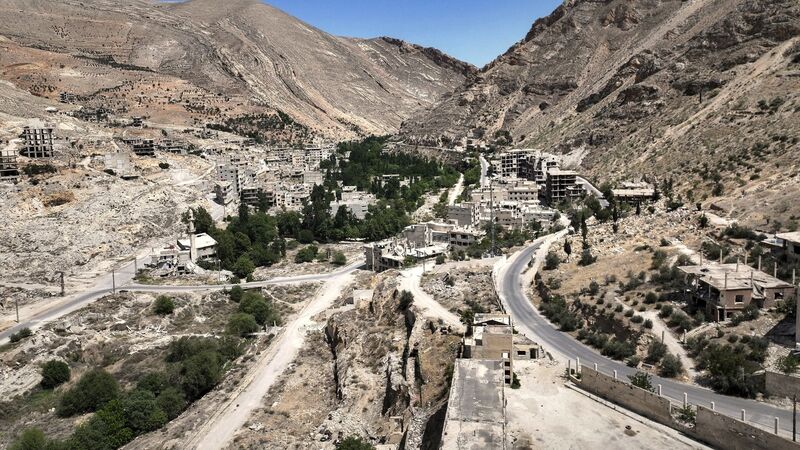Syria’s driest winter in decades triggers severe water crisis in Damascus

An aerial view of the nearly dry Ein al-Fijeh spring in the Barada Valley, Syria. Picture: Ghaith Alsayed/AP
Syria’s capital is suffering from its worst water shortages in years as a result of the lowest rainfall in more than six decades.
The Ein al-Fijeh spring in the Barada Valley is almost dry, leaving many people to rely on buying water from tankers that fill from wells.











